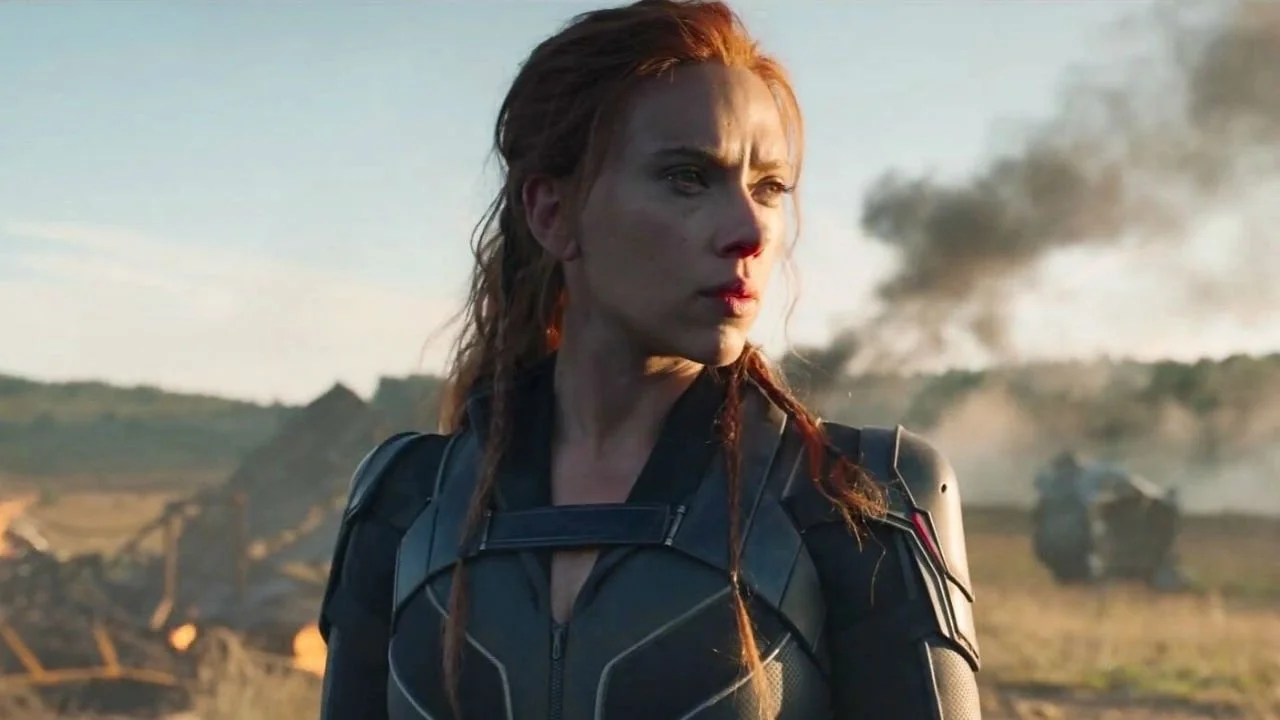Black Widow
A strong family/comedic element helps mask the bland action in this ‘been there, done that’ superhero film.
On the run from the authorities after going against the Sokovia Accords, Natasha Romanoff (Scarlett Johanssen) aka Black Widow goes to ground. She’s hiding out in a remote part of Norway, but her short-lived peace is violently interrupted when Taskmaster shows up, throwing her back into a fight against the man who tore her from her family and trained her to be an assassin. Despite her previous work with Clint Barton, the Red Room and it’s power hungry leader Dreykov (Ray Winstone) both survived - a fact brought to light by the reappearance of Natasha’s sister Yelena (Florence Pugh), who has been recently freed from the mind control technology used to control its stable of assassins. Together, Natasha and Yelena have to free their father Alexei Shostakov (David Harbour) aka the Red Guardian from prison, and team up with their mother Melina Vostokoff (Rachel Weisz), to destroy the Red Room and free the remaining widows.
Directed by Cate Shortland, Black Widow has all the trappings of a classic Marvel film - the big white location titles, the studio-backlot look, the updated costuming mimicking the costumes while adding practicality, and of course all of the callbacks and references to the other films. The issue with what’s on display here is the fact that we’re not surprised by any of it; we’ve seen it all before.
But let’s start with what works with Black Widow. There’s a lot of fun to be had here, and most of it comes from the three key new additions to the MCU - Florence Pugh, David Harbour and Rachel Weisz. The family dynamic is played to perfection, and the humour consistently lands. Whether it’s Melina matter-of-factly pointing out she is injured, Alexei constantly lumbering around like a fool, or Yelena spouting off about how cool her new vest is and how many pockets it has, the trio work so well and are so engaging it makes Johanssen’s Natasha a bit of a chore to have to focus on. Even Yelena’s endless digs about the Avengers, or about Natasha’s habit of posing mid-fight, consistently land laughs in the cinema.
With an end credit sting that teases even more of Pugh’s Yelena, we’re left with a very clear identification of the crux of the issue with this film - Natasha Romanoff is just not that interesting. As a character who has been in the MCU as a sidekick and bit player for more than a decade, a solo movie has been long overdue. The problem is that this film is too far past the date we needed it. We’ve covered too much ground with this character, that going back and digging around in her life gives her nowhere to go, shoehorned as she is by her fate in the broader MCU timeline. That’s probably why Harbour, Weisz and particularly Pugh (who is the MVP of this film) make such an impression - they feel fresh, funny and interesting, because we haven’t been watching them on screen in the same role for the last decade.
The other issues come down to the action and the villains. The fights in this film are cut to hell and CGI’d out the wazoo, to the point of demolishing any sense of believability and wasting the cool choreography potential that this series of highly trained female assassins could have had.. The villains are copy-paste banality, with Winstone doing his best at a Russian accent but without any real sense of fear, and with Olga Kurylenko popping up in a thankless and voiceless role that feels wasted.
Oddly enough, Black Widow opens with a really intriguing sequence, as this family of deep cover Russian agents flees the USA in the early 1990s, and throws credits up in a gritty human-trafficking scene. It’s one of a handful of moments that speak to a future for the MCU where it breaks the mould a little more. Black Widow isn’t the movie to do that. It’s too little, too late for a character that should have had her solo film 5 or more years ago. But it does introduce a character who could shepherd a new era for the cinematic universe into existence - Florence Pugh’s Yelena. Here’s hoping that Feige and the rest of the Marvel crew can recognise the potential they have on their hands.


